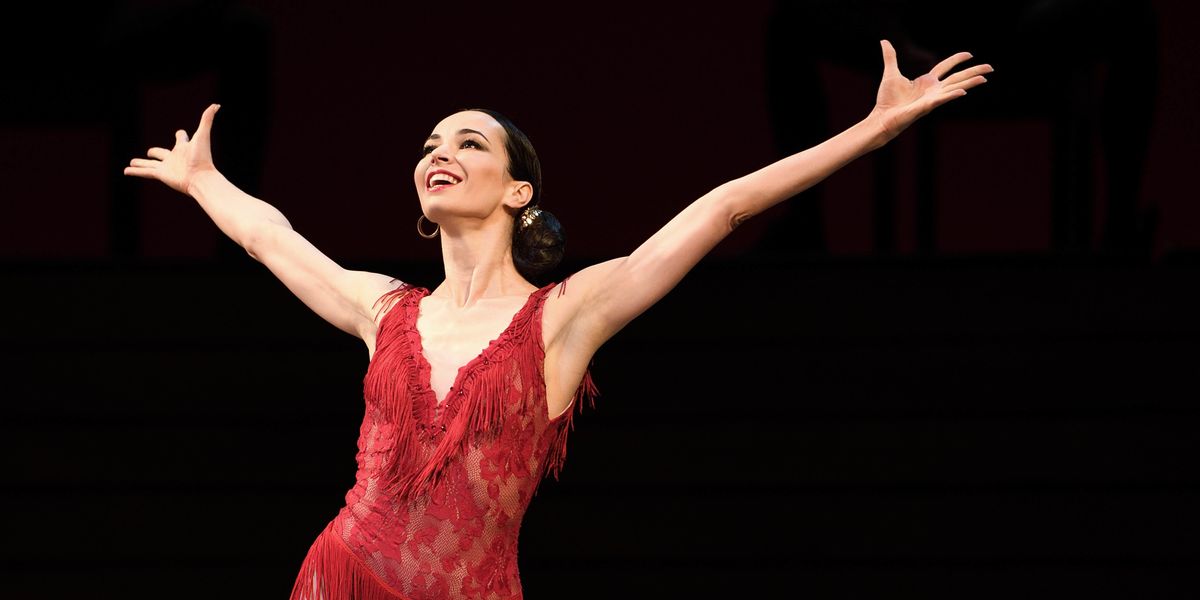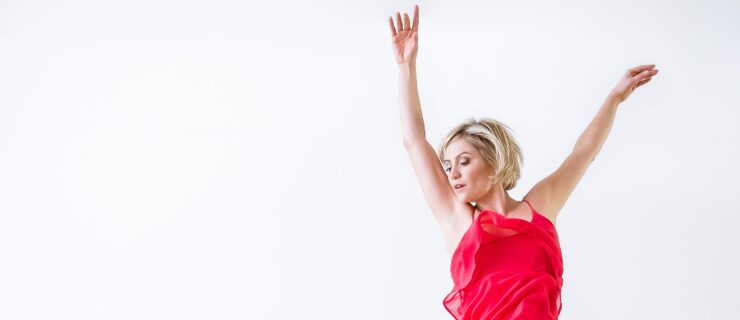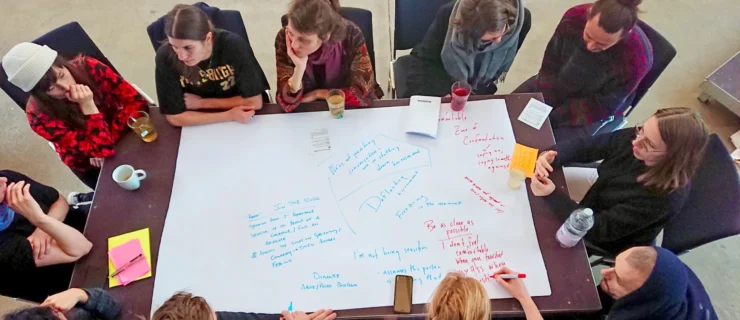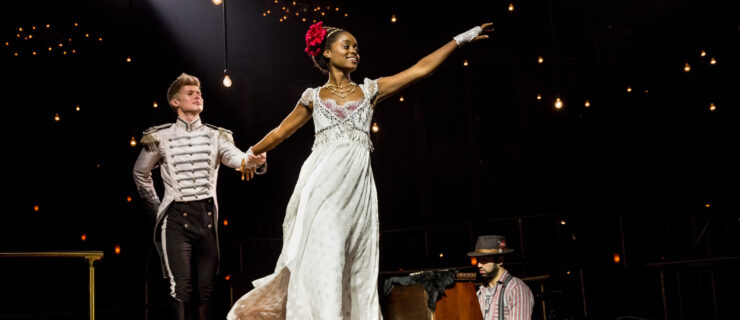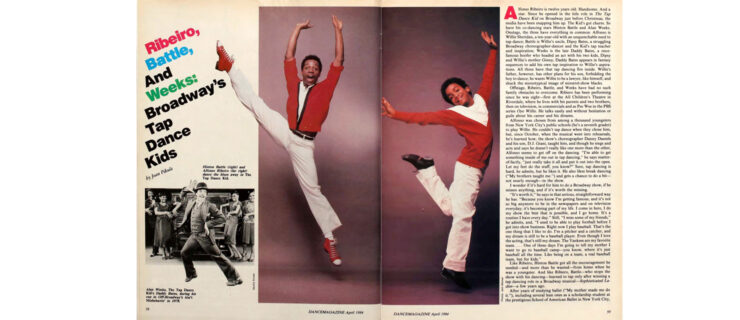Diana Vishneva Hasn’t Let the Pandemic Stop Her Festival
What does it take to organize a dance festival in the middle of a pandemic? International ballet superstar Diana Vishneva has an answer or two. Her festival of contemporary choreography, Context. Diana Vishneva, currently in its eighth season, is taking place from October 14 to November 29, with live performances at a number of venues in Moscow and St. Petersburg, Russia. This year, for the first time since its inauguration, the festival also features an impressive online program.
Dance Magazine
spoke with Vishneva about the challenges and the rewards of holding this event during the pandemic, her return to the stage of the Mariinsky Theatre and her avid new fan: her 2-year-old son, Rudolf.
Why did you decide to go ahead with the festival during the pandemic?
We never thought of canceling. Our mission is to support young choreographers, and there were more than 100 applicants this year. We launched our own digital platform to connect with the audience and to have the option to switch to the online-only format, if we had to. A number of live performances had to be postponed until 2021, including Revisor, by Kidd Pivot, and Playback, by Batsheva Dance Company. Fortunately, we were able to present our key live event, the Young Choreographers Competition, which opened the festival on October 14 at the Gogol Center in Moscow. In November, we are planning live performances of two one-act productions, Schaherezade and The Buffoon, by the Perm Ballet, which also will be available for streaming.
What are some of the new projects of the festival?
This year, we introduced a new digital platform to present online the main events of the festival, including educational programs: master classes, lectures and roundtable discussions. The livestream of our Young Choreographers Competition attracted nearly 100,000 viewers. I was surprised, even shocked, by this number. At first, I thought that there was an extra 0.
We have a brand-new initiative, Context Open, designed to give the opportunity for dancers, choreographers and companies, without restrictions on age, education or citizenship, to create and showcase their work.
We are also exploring unconventional performance spaces, such as museums and industrial buildings. One of the winners of our choreographic competition, Olga Labovkina, adapted her work Air as a piece of “immersion theater,” in which the audience actively participates in the show. It will be performed as part of this year’s festival at Moscow’s Hlebozavod No. 9 (a former bread factory turned into an art space) and St. Petersburg’s Sevkabel Port.

Maria Khurtortseva, Courtesy VIshneva
The Evening of Young Choreographers was dedicated to Pina Bausch. Tell us about this dedication.
For me, Pina became a source of strength and inspiration. She was an artist and a choreographer of incredible depth, who influenced the history of modern dance. I will always remember our meeting, in 2008. She spent a lot of time with me, taken with the fact that I was a Russian classical ballerina, who came to her festival. I performed a small excerpt from her work and we made plans for a joint production. Impressed by her festival, I got an idea for mine.
You will be dancing the title role in the reimagined Schaherezade during the festival. What is this ballet about?
It is based on the true life story of Farah Pahlavi, the last empress of Iran, a devoted supporter of women’s rights, social reforms and cultural development in her country. This ballet was created by principal ballet master of the Perm Ballet, Alexey Miroshnichenko, to the music of Nikolai Rimsky-Korsakov and premiered last year. I was honored to meet and talk with Farah Pahlavi in March, while I was performing in Paris just before the lockdown, and that unforgettable encounter makes this role even more special for me.
Recently you returned to the stage of the Mariinsky Theatre dancing in Carmen Suite. How did it feel to perform after a long break?
Seven months of not being able to perform is a very long time for a dancer. But I already had the experience in restoring my physical form after the birth of my son. That experience turned out to be very useful. I was able to get in shape very quickly.
Your son, Rudolf, is 2 years old. Has he ever seen you dancing onstage?
His favorite is my performance in Maurice Béjart’s Boléro. Every day he asks me to play the recording for him on the video. Last year, I took him to the Mariinsky to see the first act of Sleeping Beauty and he watched it, mesmerized. And he was in the audience when I was performing in Carmen Suite. He knows that his mom is a dancer. He already understands the concept of theater, audience and applause, and he likes to imitate curtain calls and bows.
How did the pandemic change your outlook on your work?
The pandemic is not over yet and we have to adapt to new reality, to the fact that it’s difficult to make any plans for the future. But it’s important to maintain optimism and find ways to move forward. Now I have a new appreciation for my work. And I am sure our dancers and choreographers feel the same way. The seven participants of our competition made their pieces during the quarantine, and because of it their creations acquired a special significance. I saw so much honesty and genuineness in the performances during the competition. The dancers know that the opportunity to be on the stage is so valuable right now and it can be taken away from them at any moment. When I got on the stage to address the audience, saying the usual “It’s so wonderful to see you with us today!”—for me, these words had a truly special meaning.
